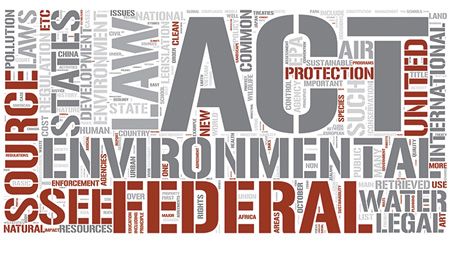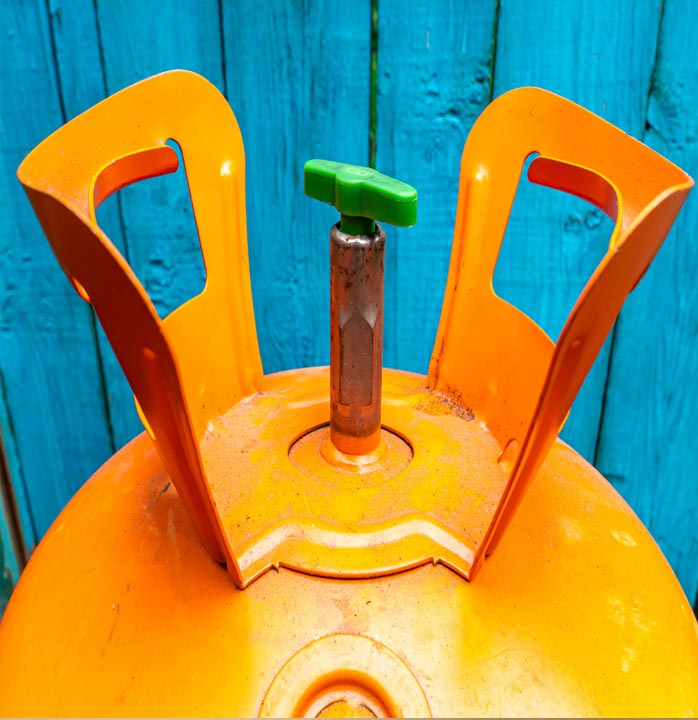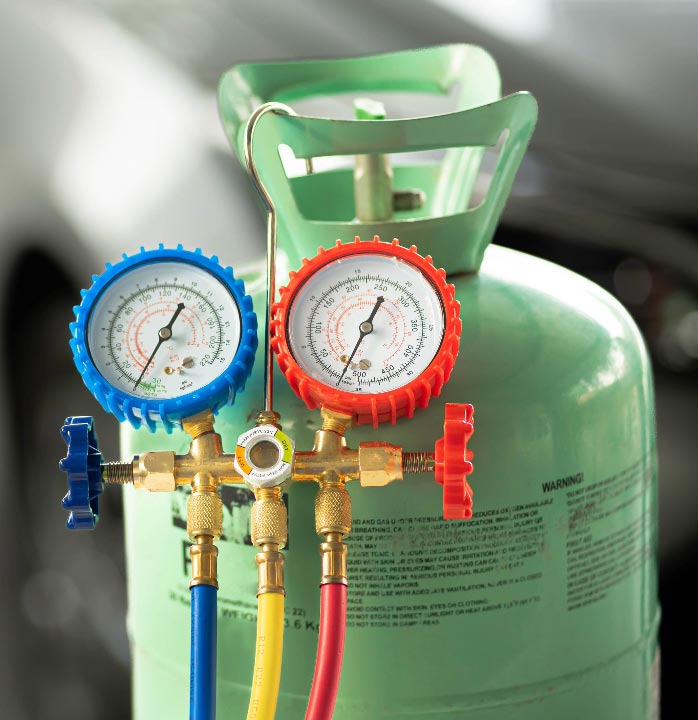In abidance of Section 608 of the Clean Air Act, the Environmental Protection Agency has issued regulations in the handling, recycling and recovery of refrigerants throughout the processes of servicing, repairing or disposing of air conditioners, refrigerators, and other appliances and equipment that use these substances. It is federally mandated that these parameters be followed and failing to do so can lead to non-compliance with the EPA resulting in fines and penalties.
The Refrigerant Recycling and Recovery Rules of Section 608 has established the following parameters:
- All service practices should aim to maximize the recovery and recycling of refrigerants, especially the ozone-depleting substances such as chlorofluorocarbons (CFC) and hydrochlorofluorocarbons, throughout the servicing, repair and disposal of air conditioners and refrigerators.
- Certification requirements have been set for the process of recycling and recovering refrigerants, as well as for the technicians, handlers and re-claimers of said substances.
- Only certified technicians are allowed to sell refrigerants.
- Everyone with refrigerant recovery equipment should have their equipment registered and certified by the EPA to ensure that they are complying with all the provisions of the rules.
- It is required that all refrigeration equipment with a refrigerant charge over 50 pounds should undergo regular maintenance and repair to avoid leaking.
- Safe disposal requirements have been set to ensure that all traces of refrigerants are removed from the waste stream if the charge is left intact (e.g. car air conditioners, home air conditioners, room air conditioners, home refrigerators and refrigerators for bulk and commercial use.)
Strict Enforcement of Prohibitions and Regulations to Refrigerant Recovery
Before checking out the numerous technical policies and provisions for the recovery and recycling of refrigerants, be sure to know what is at stake should you choose to cut corners and skip the aid of properly trained refrigerant technicians.
The EPA holds the right to conduct random inspections and pursuing cases against violators. The EPA also holds the rights to investigate tips and cases that are forwarded to them.
Under the Clean Air Act, the EPA can charge penalties and fines of up to $37,500 per day depending on the violations.
Any citizen has the right to report a violation under complete anonymity and protection. Details on this can be found in the EPA’s Office of Enforcement and Compliance Assurance website.
The EPA Regulations for the Handling of Refrigerants
The complete regulatory requirements can be found in the EPA website, but here is a quick outline that you can look over:
Service Practice Requirements
- Evacuation Requirements
This section includes the required and approved steps for refrigerant evacuation as well as the proper conditions at which refrigerants of any type should be recovered. For example, in small appliances such as water coolers and home refrigerators, 80% of the refrigerant should be recovered when: a) the technician uses equipment manufactured before November 15, 1993, and b) when the compressor of the appliance is no longer working.
On the other hand, 90% of the refrigerant should be recovered if: a) the technician uses recovery equipment manufactured after November 15, 1993, and b) the compressor of the appliance is still operational.
- Exceptions
In this section, the EPA has outlined exceptions to the rules on evacuation for: a) air conditioning and refrigeration repair, and b) repairs that are not major.
- Reclamation
The EPA has also established that refrigerants that have been recovered can be returned to the same system or can be transferred to other systems owned by the same person. Refrigerants should only be reclaimed if the ownership has changed.
Refrigerant Recovery and Recycling Equipment Certification
All manufacturers and importers of refrigerant recovery equipment are required to have their equipment tested by an EPA-approved organization to lessen the involved hazards. Home air conditioning and refrigeration equipment should be tested based on the ARI 740 test protocol. And recycling and recovering equipment should be tested under the EPA Appendix C.
The Air Conditioning, Heating and Refrigeration Institute (AHRI) and Underwriters Laboratories (UL) have both been approved and certified by the EPA.
Other Regulations For Refrigerant Recovery
There are individual sections regarding the following areas in the complete list of regulations for refrigerant handling, recycling and recovery. Check the provisions regularly as there could be updates in the following sections:
- Refrigerant Leaks
- Certification of Technicians
- Sales Restrictions
- Certification by Owners of Refrigerant Equipment
- Reclaiming Refrigerants
- Sales Disposal Requirements
- Enforcement of the Act
It is in your best interest, safety and health to hire the help of trained and certified professionals to handle the recovery of refrigerants. Do not try this alone and unsupervised. With over 15 years of experience in commercial HVAC, Refrigerant Services LLC is a trusted service provider for all your on-site refrigerant recovery needs. Contact us today at 844-PURECFC (787-3232) or fill out our Schedule a Pick Up form to get started now!





